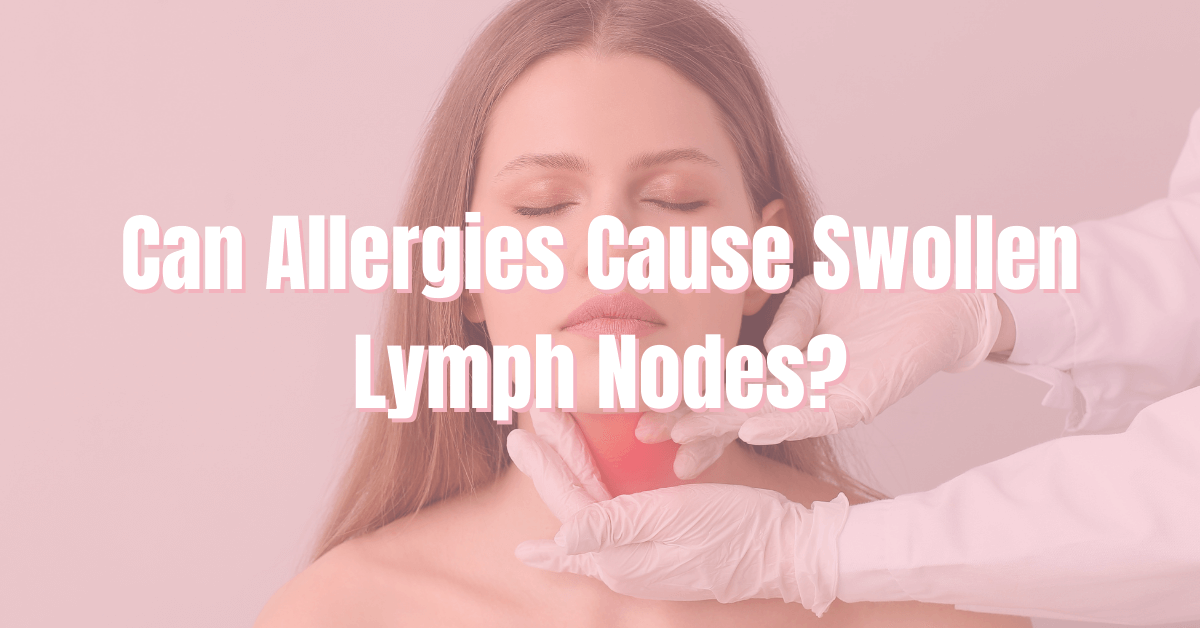
Swollen lymph, enlarged glands mainly growing around our throat, requires immediate medical attention as it may be a result of a host of reasons primarily among them being infection.
The glands may get swelled when our body is fighting some bacterial or virus-related invasion getting into our anatomical system. Such infections can affect the body originating in various organs including the throat, ear, mononucleosis, and tooth.
Persistently swollen lymph nodes require immediate medical attention. Sometimes, we do have swollen lymph. But it does not continue for long. It comes and goes within days without getting enlarged.
Such conditions are generally considered not something to worry about. But the continuance of such swollenness maybe for a few days or a week, may require immediate medical consultation as it shows the infection is serious. In such cases, allergy medication may be required on an urgent basis.
If one develops a fever while having swollen lymph, it should not be neglected even for a day or two. In such a case, the patient should consult a medical doctor immediately lest the infection assumes serious forms.
However, this should be kept in mind that such swellings often happen to human beings. It does not signify a pre-cancer stage or cancer unless a biopsy report is seen. By and large, people develop such swellings due to bacterial infections.
[Read more: What Foods are Rich in Fiber?]
What are Lymph Nodes?
In human anatomy, they are an integral part of our lymphatic system. The lymphatic system is a network of duct or pipes lymph fluid move in the entire human body. The lymphatic system greatly helps the human body’s immunity by gathering fluid, waste material, viruses, and bacteria.
Acting like natural filters, the lymphatic system cleanses the human body of toxins and other harmful elements. They strengthen the body’s immune system to fight bacterial infection and kill parasites and germs of different natures.
Human anatomy has many such lymph nodes thus forming a network of its own. Being very delicate, they are hyper- susceptible to react. They react by swelling. Due to this susceptibility, such lymph should be treated with medicines immediately. Any neglect may result in further complications that may take a long time to get cured.
Why Do Lymph Nodes Swell?
This happens when you have some sort of allergies. The primary reason for this relates to the natural functionality of lymph nodes. When they are trying to filter out pathogens, they tend to swell as the pathogens obstruct the flow of fluids in the body system.
They are not able to filter the system. As a result, the affected area swells. Sometimes, such swelling may be small. Sometimes such swelling may be large causing immediate medical attention.
The areas of such swelling in the human body are the neck, groin, and armpits. Such swelling is termed medically—lymphadenopathy.
Such swelling should not alarm you as it returns to normalcy once the germs and pathogens are eliminated through medication. This, however, varies from the individual case. Sometimes, such bacterial attacks may be serious resulting in a long time of medication to restore the normal size of glands. Sometimes, they are ordinary ones needing only a handful of days to get completely cured.
[Read more: The Importance of Vitamin C Powder for Your Face and Skin]
Can Allergies Cause Swollen Lymph Nodes?
Yes, allergies of different forms and specifications cause swelling of lymph nodes in various sizes depending upon the seriousness of the infection. Such can be bean-sized, longish swelling, or round swelling in large size.
The real reason is that something that activates secretion related to the body’s immune system can cause swelling in lymph nodes. Any allergy of serious nature or obstruction in a free flow of fluids can cause it.
A cold in winter can cause swelling in the upper respiratory system. Children are mainly prone to swollen lymph in the winter. But it can happen with adults as well.
The human lymph is very highly sensitive. It just cannot tolerate any infection. Subsequently, they swell whenever a bacterial attack takes place. Being unable to tolerate it, they swell and are restored back to normalcy when the germs are eliminated.
Common Allergy Symptoms
There are certain common allergy symptoms. Some of them may be common not posing any danger and some may be serious requiring immediate medical attention.
The common allergic symptoms usually include sneezing, watery eyes, cough, congestion, and a runny nose. In several cases, such symptoms may be the appearance of a rash in the body that is irritating and itching.
Many people are allergic to dust. One may also suffer from a sinus infection. These are common symptoms of allergy. In several cases, they can cause swelling in body parts. Such swellings, either minor or major, happen when the body system is fighting germs, parasites and other pathogens.
Such swellings may subside once the human anatomy gets rid of such pathogens or infections. The glands are restored to their original form. However, if the swelling continues, there is an urgent need to consult a doctor who might prescribe some medication.
[Read more: The 5 Sacred Foods of the Perfect Breakfast]
How to Deal With Swollen Glands?
The swelling can be cured with medication and other methods suggested by a doctor. In all such cases of swollenness, it is always wise to act on the advice of a medical practitioner after consulting him or her.
Since such swelling may turn serious if self-medication is done, it should always be avoided. Very often, people resort to home remedies to cure the gland’s swelling. They often put on warm clothes to subside such swelling.
Such home remedies, however, may not work if the pathogen infection is serious. Hence, it is always advisable to consult a medical practitioner to get the swollen glands cured.
A swollen gland should be cured by taking an anti-allergic medicine prescribed by a doctor. In most cases, the doctor may prescribe some anti-allergic medicines to fight out the pathogens.
However, if the degree of infection or pathogen-related toxicity is serious, the doctors may prescribe several medicines to treat the swollenness of glands. The concerned medical practitioner would know the level of seriousness by watching the subsidence of swollen gland after taking prescribed medicines for a few days.
Conclusion
Swollenness of glands often leads to the misconception that it is an indication of cancer. But it is not so. Gland swelling does not always mean the patient is suffering from cancer. It can have been caused by parasites or germs.
Hence, a generalization should not be done. They are very much case-specific. As a result, one should not be thinking of suffering from cancer while developing swelling in glands. The reality is that rarely a suddenly developed swelling in lymph turns out to be cancer.
It may be a simple case of bacterial attack yet you may be falling under the mental trauma of suffering from cancer though there is no reason for such fears unless the biopsy report confirms it.
Our anatomical lymphatic system, basically a network of organs, vessels and lymph nodes, can swell due to several reasons. They can cause slight pain. But such swellings subside once the medication is done.
As our lymph nodes are very highly sensitive to infections, they cannot tolerate the localization of germs, pathogens, and parasites. They swell. Such swelling does not mean anything serious.



